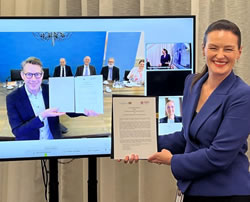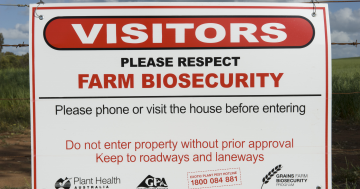 A new research agreement between Queensland and the German State Government of Bavaria seeks to combat climate change.
A new research agreement between Queensland and the German State Government of Bavaria seeks to combat climate change.
The new agreement puts in place formal cooperation between the two Governments to support collaborative university-level research on priority topics, including greener fuels, energy storage, and emission reduction technologies.
It was signed during a live video conference between Minister for Science, Leanne Linard and Bavarian Minister for Science and the Arts, Markus Blume.
The agreement builds on existing research and industry connections between the two States, which include Queensland University of Technology’s collaboration with Bavaria’s University of Bayreuth, and the University of Queensland’s partnership with the Technical University of Munich.
In June 2022, the Bavarian Government proposed more formal cooperation between the States to support collaborative research, at the university level, on priority research topics.
Collaborative research priorities supported by the agreement include green hydrogen, synthetic fuels and energy storage, emission reduction technologies and artificial intelligence, among others.
Ms Linard said research opportunities resulting from the agreement would help Queensland develop a prosperous and resilient economy that managed the risks of climate change while making the most of the opportunities that went with transitioning to a net zero emissions economy.
“Importantly, the science priorities promoted in the agreement will help the State in its drive towards the goals of the Queensland Climate Action Plan 2030,” Ms Linard said.
“This plan provides a roadmap over the next decade to address climate change and to help reach Queensland’s targets of at least 50 per cent renewable energy by 2030, 30 per cent emissions reduction below 2005 levels by 2030 and eventually, net zero emissions by 2050.”











